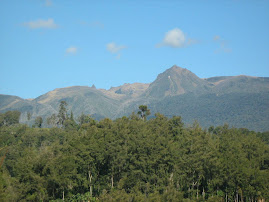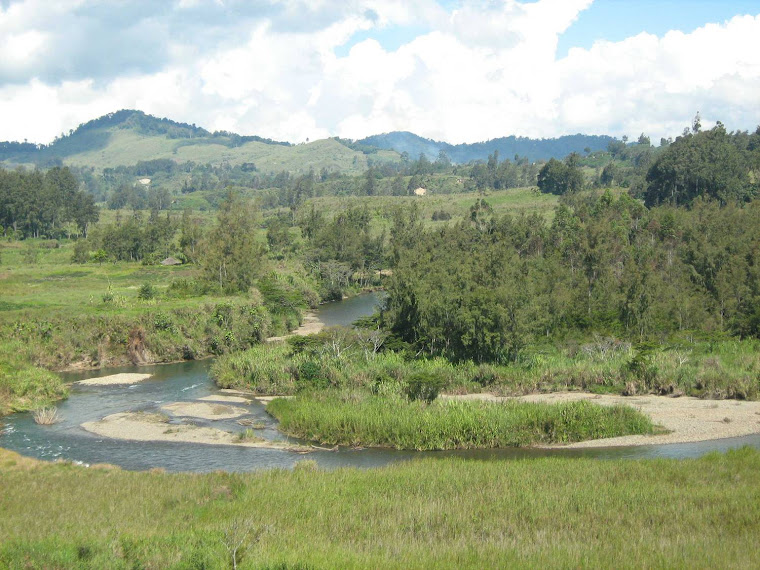
Caption: The Long-March II-F carrier rocket carrying the Shenzhou-7 spaceship blasts off from the launch pad at the Jiuquan Satellite Launch Center in northwest China's Gansu Province, on 21:10 p.m., Sept. 25, 2008. (Xinhua/Li Gang)
By Mathew Yakai, Changchun, China
“THE Chinese people today march towards space technology…..” Chinese President Hu Jintao declared fifteen minutes after the successful launching of Shenzhou - 7.
Shenzhou-7 blasted off at 9:10pm Thursday 25th carrying three astronauts, Zhai Zhigang, Liu Boming and Jing Haipeng, all aged 42, the first generation of astronauts.
President Hu was at the Jiuquan Satellite Launch center in Gansu province with other top Communist Party leaders to see China’s Long-March II-F rocket carrying Shenzhou – 7 space craft blast off into space.
Zhai Zhigang will walk in space, placing China’s pace at space walk after the former USSR and USA in human space history.
China Daily reports the space tasks include releasing a small monitoring satellite and satellite data relay.
Shenzhou, in Chinese means “Chinese wide landmass”. What is interesting is that after the successful launching and return of Shenzhou – 7, Shenzhou – 8 and Shenzhou – 9 will be inbuilt with space station released to space and Shenzhou – 10 will be manned to finally build China’s first space station.
This will place China, one of the largest remaining developing communist countries against Soviet Union and USA in space technology.
China’s international commentators immediately commented that China’s space exploration is neither driven by military operation nor arms race like during the Cold War period between the former USSR and USA. China is different with its own reasons.
The reasons are yet to be known but if any closer, current China’s foreign policy depicts all its on earth and outer space operation for scientific and peaceful co-existence of humanity on a win-win situation while non interference in other sovereignty.
The time table depicts that China is not in a race with any countries but itself committing its own resources and technological know-how.
Professor John Simpson Lewis of Arizona University, USA commented on the state owned CCTV 9 television few minutes before the launching that Shenzhou – 7 has no elements of race or showing-off because all is happening during the progressive scientific development today.
This implies that China is now at par with the 21st century space technological development.
This is China’s first time to send three astronauts to space together after a total of 66 successful launches without any accident since its interest in space exploration.
The successful launching took place immediately after the hosting of 2008 Summer Olympic in Beijing in August and the Paralympics Games September.
The launching follows with the world’s positive comments on China’s impressive performance in hosting the Olympics, leaving aside the widening milk crisis tests that found the dangerous chemical melamine.
The Olympic, Paralympics and the successful launching happened coincidently when China commemorates its 30th anniversary since its opening up and economic reform in 1987.
In international relations, there is no world government, thus the international politics and system is anarchic. Countries inevitably look at protecting themselves in such an anarchic world order, and that is only through military means.
By nature, people are selfish, thus states too, who are the major players in international relations – and try to maximize their own benefits.
Realists believe that military spending must gain priority to modernize its military so that its land, sea and air boundary is protected.
That’s what USA did with Iraq. Washington invaded Iraq alleging that Sadam’s alleged nukes were of threat to America after September 11 attacks on the Twin Towers.
USA termed Iraq, Iran and North Korea as “axis of evil” believing all are aiding terrorists, threatening USA’s global hegemony.
Iran’s nuclear program was launched in the 1950’s with the help of the United States as part of the Atoms for Peace program. The support, encouragement and participation of the US and Western European governments in Iran’s nuclear program continued until the 1979 Islamic revolution that toppled the Shah of Iran.
Iran's first nuclear power plant, Bushehr I was expected to be operational in March 2008 and delivering its maximum capacity to the nation's power grid by March 2009.
However, USA is pressuring Iran to stop its alleged nuclear enrichment program, even going to the extent of imposing economic sanctions.
Another allegedly rogue state, North Korea demolished its Yongbyon nuclear complex, a gesture towards halting its nuclear program, paving way for a peaceful Korean Peninsular.
But recent reports out from Pyongyong shows that North Korea is rebuilding its nuclear plant after USA failed to keep its commitment towards that hungry stricken country with food ration and energy supply.
Even, George Bush is yet to remove the tag “axis of evil” off from North Korea.
What ever the logic, realists will argue that North Korea and Iran see USA’s modern military as a threat, after unsuccessfully attacking Iraq and they would be the next. Military strategists always draw this conclusion.
Is this arms race in the 21st century, the nuclear age where the emergence of WWIII would be a disaster in human history? World leaders are mindful of this.
Washington always sees itself as hegemony despite the fact that its hegemony statutes is slowly declining or eroding after the Cold War.
Liberals, on the other hand believe that institutionalism is the way forward for countries to solve any imminent problems. In this situation, norms and values in the established regimes such as international and regional organizations should be adhered with where interdependence and trade is encouraged.
What does China’s successful launching of Shenzhou – 7 means to world security and international politics? This is the question many academias and scholars will debate given the commonly talked theory that “china’s rise is a threat”.
On one extreme, optimists uphold the notion that China’s rise is “peaceful”.
Pessimists may worry that with its increasing space exploration and power, China will become a threat to other countries, just as Germany, Japan, and Russia did earlier this century.
To reduce this danger, pessimists argue that the rest of the world should stand firm against China and contain its expansionist’s tendencies.
Optimists, on the other hand, are hopeful that a stronger China would not be a more aggressive China. To encourage cooperative behavior on the part of the Chinese, it is important to engage China and integrate it into the international system.
Many of the later persuasion place their hope on “socializing” China into the norms of international cooperation. The concept of socialization has recently gained currency among Western international relations (IR) scholars and policy analysis.
They argue that “states are embedded in dense networks of transnational and international social relations that shape their perceptions of the world and their role in the world.
Thus, multilateralism is central to the optimists’ vision of socializing China. But multilateralism in Chinese perception is different as opposed to Western counterparts as Chinese International Relations (IR) scholars have not taken to abstract theories.
As one prominent Chinese researcher has pointed out, “In the Chinese context, a theory is not much different from a doctrine, an ideology, or a set of propositions serving as a guiding principle for action.”
IR Theory, in turn is “a guide for international action and foreign policy”. IR theory is closely connected with Chinese foreign policy.
From the founding of People’s Republic of China after WWII to late 1950s, the theory of “two camps” held sway. It was this ideological doctrine that lay under China’s alliance with the Soviet Union against the United States.
In 1960s, the theory of “opposing imperialism, revisionism, and reactionaries” became the guiding principle of Chinese foreign policy. Under it, China rejected Soviet revisionism as well as American imperialism.
In the early 1970s, Chairman Mao’s theory of the differentiation of “three worlds” emerged as the new conceptual framework about international relations.
It divided the world into three groups-the superpowers (first world), the developing countries (third world) and those in between (second world). China firmly placed itself in the third world.
China’s IR Theory since the early 1980’s has championed peace and development. The country’s foreign policy has shifted to one founded on strategic nonalignment and active participation in international economy.
Though China’s indigenous international relations theory perceived multilateral organizations as instruments of imperialism, China today stands as one of the active members in both international and regional organizations.
Though multilateral arrangements in Asia-Pacific is new as opposed to European Union, China’s participation has seen tremendous improvements in international and regional organizations.
In the Pacific, China also involves in many of the Forum Secretariat’s programs, either directly or indirectly.
As a member of the Security Council with veto power, China has contributed in world peace by participating in UN overseas missions, aid and relief programs.
In his recent UN high-level meeting on the Millennium development Goals (MDGs) in New York, Chinese Premier Wen Jiabao said that China will speed up efforts and provide more assistance to needy countries to facilitate the attainment of the MDGs.
China will contribute US$30 million to the UN Food and Agriculture Organization to establish a trust fund to help developing countries enhance agricultural productivity as reported by China View online.
China’s presence is felt in both international and regional politics for a peaceful coexistence by humanity.
If Mao Zedong’s principle of “three world” still exists today then China is a flagship of developing countries…a foot step the pacific island countries must consider.
Shenzhou – 7’s successful mission will only come to fruition upon its successful return. However, China represents the developing countries in UN Security Council, major influential regional and international forums, in science and technology, and now in space technology.
Whether its space technology or foreign policy, one thing remains vivid for Pacific Island countries and other developing countries which have been exploited by Westerners to learn, “China has an independent foreign policy and technological research mechanism which is hardly influenced by westerners”.
Shenzhou – 7 is an independent modern piece of space craft entirely built by China and sent to space for an independent research, not racing against US.
China’s foreign policy is also independent and domestically focused.
If there is any conclusion of Shenzhou – 7 and China’s possible impact of space technology then it is to enrich the wellbeing of humanity. Developing countries stand to benefit from this innovation.
China’s march towards space technology is not a threat, but part of China’s dream towards a peaceful world order, thus, China’s rise is “peaceful”.






























